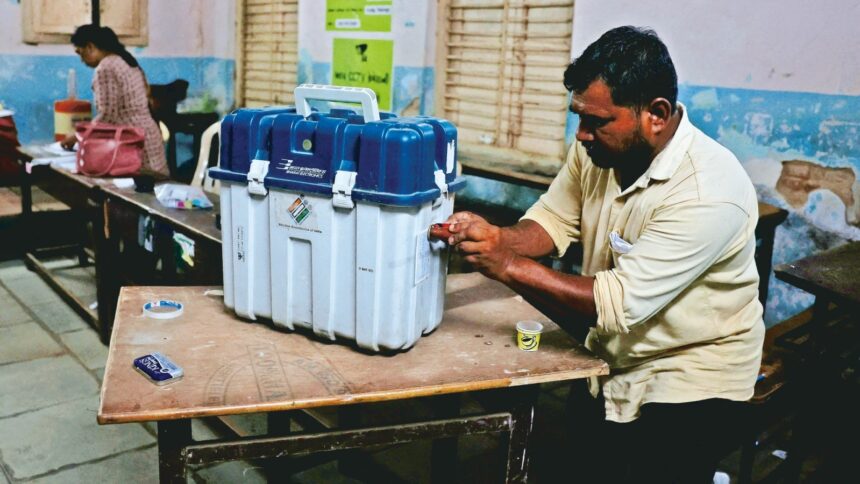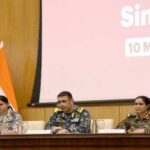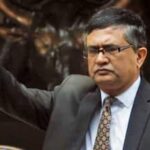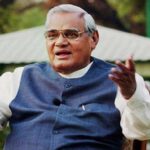THE CPI(M) expressed concerns over “misuse” of religion for political gains, plans for ‘One Nation, One Election’, talk of a law to check promises made in election manifestos, and doubts regarding EVMs, at a meeting held with the Election Commission on Saturday.
This was the poll panel’s third interaction with a political delegation, as part of the meetings it is holding with national and state party presidents to address their concerns regarding the poll process. As part of this, it earlier met the BSP and .
In its strongly worded submission to the EC, the CPI(M) flagged a “faltering” approach when it came to “restraining or punishing” parties and leaders using religion for political gains. “What starkly stood out was the initial refusal of the Commission to even take cognisance of the multiple complaints lodged against Prime Minister (Narendra) Modi for his blatantly communal campaign, despite its own advisory about plummeting levels of public discourse,” it said.
“There have been several instances of the misuse of office by the Prime Minister, the Home Minister and others during the course of elections,” the CPI(M) said, adding that ‘Operation Sindoor’ could also end up being used for electoral purposes.
The CPI(M) delegation comprised its general secretary M A Baby, Politburo member Nilotpal Basu and Central Secretariat member Muralidharan. The EC side included Chief Election Commissioner Gyanesh Kumar and Election Commissioners Sukhbir Singh Sandhu and Vivek Joshi.
In a note submitted to the EC, where it welcomed the poll panel’s initiative of engagement with political parties, the CPI(M) said the government’s push for One Nation, One Election “amounts to truncating the life of some Legislative Assemblies to align them with the Lok Sabha election”, and “undermined” basic features of the Constitution such as democracy and federalism.
The CPI(M) also said it did not support a law declaring manifesto promises by a political party resulting in direct or indirect financial aid to be a corrupt practice. “On the surface, though it may seem to underscore the importance of transparency and accountability in the electoral process, it strikes against the right of political parties to freely express their policies, programmes and promises to the people,” the party said, adding that there were already requisite guidelines in the Model Code of Conduct for this.
The party raised, what it called, “a huge disparity” in the ratio of vote share and seat share, and said the EC should look at the CPI(M)’s proposal of proportional representation in this regard.
“In 2014, for the first time, a party, the BJP, with a vote share of just 31 per cent, won more than half the number of seats in the Lok Sabha elections. As opposed to it, the Congress with 19.3 per cent votes got just 44 seats… In the 2024 Lok Sabha elections, the BJP secured 240 seats with 36.56 per cent votes, while the Congress, with a mere increase of 1.89 per cent, won an additional 55 seats as compared to 2014,” the CPI(M) said, going on to give similar examples from Uttar Pradesh, Odisha, Andhra Pradesh, and .
The party asked the EC to find an answer for “increasing doubts” about the “vulnerability” of EVMs, and said it favoured a modification in the placement of VVPATs. “As per the current sequence… first is the ballot unit, followed by the VVPAT, and last… is the Control Unit… There are doubts over whether (the voter’s) choice is actually recorded in the Control Unit… We and many others have been suggesting that the VVPAT be placed after the Control Unit. This would clear doubts that exist about the integrity of the process,” the CPI(M) said.
The party sought a solution to “discrepancies” between the initial data of voter turnout released at the end of polling and the final data released after “the delay of a number of days”.
Lastly, the CPI(M) raised the power of money in elections, saying it was “disturbing the level-playing field and vitiating the whole process of free and fair elections”. It reiterated the role of an independent and autonomous EC in this, and underlined its objections to the new selection process for election commissioners.








